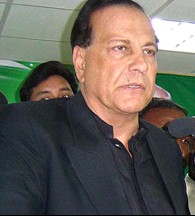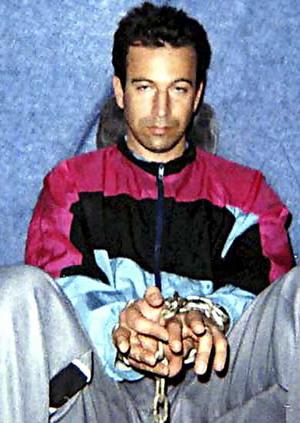Mood:
Now Playing: Salman Taseer's death killed freedom
Topic: PAKISTAN'S DILEMMA


| « | April 2024 | » | ||||
| S | M | T | W | T | F | S |
| 1 | 2 | 3 | 4 | 5 | 6 | |
| 7 | 8 | 9 | 10 | 11 | 12 | 13 |
| 14 | 15 | 16 | 17 | 18 | 19 | 20 |
| 21 | 22 | 23 | 24 | 25 | 26 | 27 |
| 28 | 29 | 30 | ||||


When news trickled in at 6:50 pm on December 27 that Pakistani Opposition leader Benazir Bhutto is dead, there was disbelief and a sense of incredulity. Though GEO TV of Pakistan was the first in the media to declare her dead, everyone waited for the rumour to be squashed. The hope dissipated with every second passing until the Pakistan People’s Party (PPP) spokesman announced her death standing outside the Rawalpindi general hospital trying hard to sound legible in the midst of overriding emotions.
If people in Pakistan as well as around the world had the wishful thinking that the news about her death would be proved wrong, they had good reasons for their concern. Benazir Bhutto was assassinated in a suicide attack just as she drove away from a campaign rally just minutes after addressing thousands of supporters. According to eye witnesses reports, she was travelling in a bullet-proof car but she had kept the window panes open to touch and shake hands with her supporters along the way. That proved fatal. The assailant first shot five bullets at her with a AK-57 rifle and then blew himself up near to the car.
Tragically, as it always happens at bomb blast sites, for a full ten minutes people did not come to the rescue of their leader from the car fearing another suicide bomb attack. She is reported to have died on the operation table at the hospital.
She was probably the most charismatic leader in Pakistani politics today, though she has never been relenting in her attacks on India and Kashmir. Over the years she had matured from her virulent speeches on army presence in Kashmir just as she was quiet on Pakistani occupation of Kashmir.
Her death has thrown the election campaign for the January 8 elections into chaos and even while going to press there were reports of mass protests and violence. Violence broke out in Lahore, Multan, Peshawar and several other parts of Pakistan. People burnt down banks, state-run grocery stores and private shops. Pakistan’s President Pervez Musharraf promptly blamed Islamic terrorists for the assassination. His words were brave: “This is the work of those terrorists with whom we are engaged in war”. But as Human Rights activist Asma Jehangir sorrowfully noted the culpability of Pakistan army in Bhutto’s killing itself is not far-fetched. The fact of the matter is that in Pakistan there is a thin line, often blurred, between local jehadi groups, army regulars and international terrorist outfits like Al Queda. The army can employ young boys from terrorist organisations to do its dirty job.
Bhutto’s death left a void at the top in her Pakistan People’s Party. US President George Bush’s anxiety at the fast developing events in Pakistan was not ün-noticeable. Speaking to reporters at his ranch in Crawford, Texas, a visibly worried Bush said that, “those who committed this crime must be brought to justice.”. Within an hour of the assassination President Musharraf convened an emergency meeting with his senior staff.
Benazir Bhutto, 54, served two terms as Prime Minister between 1988 and 1996. But in spite of her Kashmir agenda she spoke against militants’ overbearing grip in her country.
The most important question that confronts Pakistan today is: Should the elections be held? And if the elections are postponed what happens to the democratic process? Will the country sink into the quagmire of terrorism, religious fanaticism and anti-progress elements. Nawaz Sharif today is the lone Opposition leader and even he has suggested there is no point in holding elections when there is so much fear and threat to life. There are also experts who point out how Pakistan has survived worse crises, though democracy of any kind is too plaintive a system for a country that is ravaged by Islamic fanaticism. In the ultimate analysis, as Pandit Nehru had said: “It’s never the choice between the good and the evil. It’s always a choice between the evil and the lesser evil”. When it comes to Pakistan’s leaders it’s so true.
Newer | Latest | Older